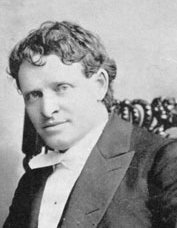A Quote by Benedict Cumberbatch
You can perfect genius because genius is not perfection. On his level and his practice and his methodology, it's almost inhuman. So, that's been a fantastic arc to play, and boy does it go somewhere in this series.
Related Quotes
A genius is the man in whom you are least likely to find the power of attending to anything insipid or distasteful in itself. He breaks his engagements, leaves his letters unanswered, neglects his family duties incorrigibly, because he is powerless to turn his attention down and back from those more interesting trains of imagery with which his genius constantly occupies his mind.
But Shakespeare knows what the sphinx thinks, if anybody does. His genius is penetrative as cold midwinter entering every room, and making warmth shiver in ague fits. I think Shakespeare never errs in his logical sequence in character. He surprises us, seems unnatural to us, but because we have been superficial observers; while genius will disclose those truths to which we are blind.
The fact that scientists do not consciously practice a formal methodology is very poor evidence that no such methodology exists. It could be said-has been said-that there is a distinctive methodology of science which scientists practice unwittingly, like the chap in Moliere who found that all his life, unknowingly, he had been speaking prose.
The book, the college, the school of art, the institution of any kind, stop with some past utterance of genius. . . . They look backward and not forward. But genius looks forward: the eyes of man are set in his forehead, not in his hindhead: man hopes: genius creates. Whatever talents may be, if the man create not, the pure efflux of the Deity is not his; - cinders and smoke there may be, but not yet flame.
The great piano virtuoso Paderewski was once playing before an audience of the rich and the royal. After a brilliant performance, an elegant lady waxed ecstatic over the great artist. She said, "Ah Maestro, you are a genius!" Paderewski tartly replied, "Ah yes, madam, but before I was a genius I was a clod!" What he was saying was that his present acclaim was not handed to him on a silver platter. He, too, was once a little boy laboriously practicing his scales. And even at his peak, behind every brilliant performance there were countless hours of practice and preparation.
Clearly the hardest thing for the working artist is to create his own conception and follow it, unafraid of the strictures it imposes, however rigid these may be... I see it as the clearest evidence of genius when an artist follows his conception, his idea, his principle, so unswervingly that he has this truth of his constantly in his control, never letting go of it even for the sake of his own enjoyment of his work.
The great genius does not let his work be determined by the concrete finite conditions that surround him, whilst it is from these that the work of the statesman takes its direction and its termination. ... It is the genius in reality and not the other who is the creator of history, for it is only the genius who is outside and unconditioned by history.
His hypothesis goes to this - to make the common run of his readers fancy they can do all that can be done by genius, and to make the man of genius believe he can only do what is to be done by mechanical rules and systematic industry. This is not a very feasible scheme; nor is Sir Joshua sufficiently clear and explicit in his reasoning in support of it.
The man who succeeds above his fellows is the one who early in life, clearly discerns his object, and towards that object habitually directs his powers. Even genius itself is but fine observation strengthened by fixity of purpose. Every man who observes vigilantly and resolves steadfastly grows unconsciously into genius.
The old idea that some genius pulls all of this stuff out of the air is ridiculous. As Ridley pointed out, the only way Edison could invent the lightbulb is because all the elements had been developed before. That's obvious it wasn't just his genius - 20 others developed it at the same time. And that's true for almost every invention and discovery.



































